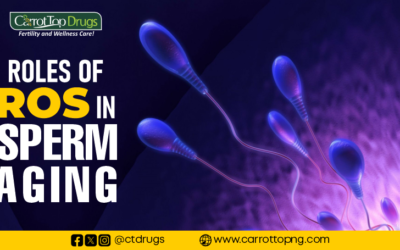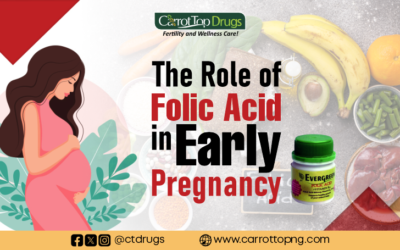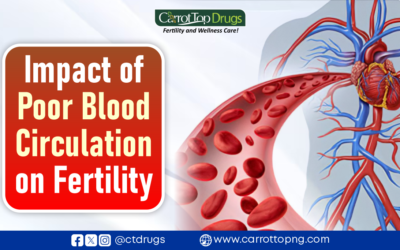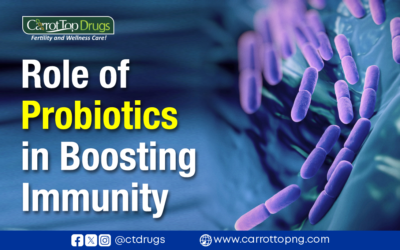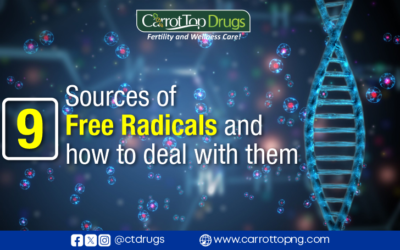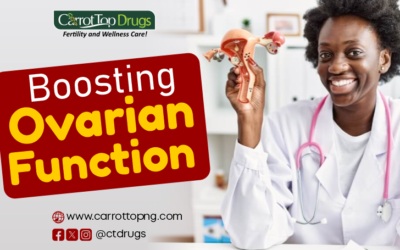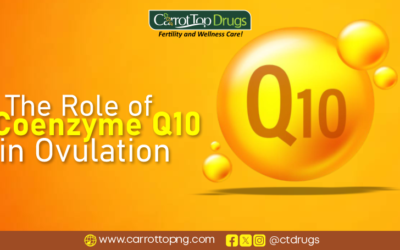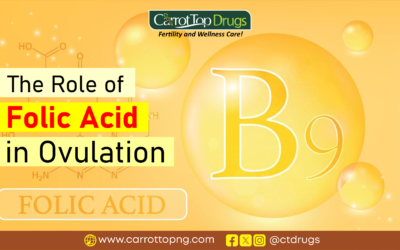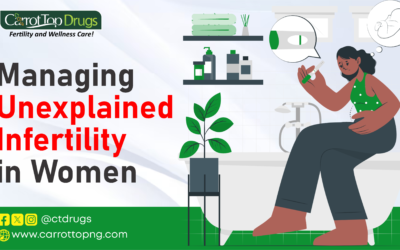The importance of pre-natal vitamins and minerals play a very essential role in maintaining a safe and healthy pregnancy. These pre-natal vitamins and minerals help to meet the nutritional demand of the mother and foetus as well as maintaining their health as well. They also help to enhance your baby’s development and minimize the risk if birth defects as well as preventing the depletion of your own vitamin and mineral supply. The importance of these pre-natal vitamins and minerals include the following:
- VITAMIN D: Vitamin D is a group of fat-soluble prohormones which helps absorb calcium and phosphorus from dietary intakes required for stimulating skeleton formation of the foetus. It is also produced by the body during sunlight exposure and it can also be found in eggs, oily fish and dairy products. Vitamin D deficiency has been found to be associated with an increased risk of gestational diabetes, preeclampsia, diabetes mellitus and rickets. Vitamin D supplementation during pregnancy can help reduce the risk of all these.
- VITAMIN A: Vitamin A is a is a fat-soluble vitamin stored in the liver. It is important for your baby’s embryonic growth, including the lung, eyes, kidney, bones, heart as well as circulatory, respiratory and central nervous system development. It is very essential for women who are about to deliver as it helps with postpartum tissue repair. It helps to maintain normal vision, support your immune system, fight infections and helps with fat metabolism. Sources of Vitamin A include eggs, milk, liver, orange and leafy green vegetables. Deficiency of vitamin A has been associated with preterm birth, low birth weight, intrauterine growth retardation, placental abruption and increased mortality rate of the mother.
- VITAMIN C: Vitamin C requirement should be sufficient in pregnancy due to large blood volume in the mother and the growth of the unborn baby. It stimulates better iron absorption and therefore helps to reduce the risk of maternal anemia. It helps in collagen (a structural protein) production, which is a component of tendons, bones and skin. It is essential for wound healing, tissue repair, bone growth and healthy skin. As an antioxidant, it also guards the body against injurious free radicals protecting cells from damage. Sources of Vitamin C include citrus fruits and leafy green vegetables. Vitamin A deficiency during has been shown to impair mental development in newborn babies.
- VITAMIN K: Vitamin K plays an essential role in blood clotting, thereby enabling wounds to heal properly. This is specifically important during labour after you have delivered, as at the time your body is recovering and starting to heal. Vitamin K also increases bone strength and density, helps in protein formation in the liver, boosts immunity and helps to fight tooth decay as pregnancy could lead to bad dental issues such as gum disease. Sources of vitamin K include meat, egg and cheese. Vitamin K deficiency can result to bleeding in the brain and subsequently brain damage and death in newborns
- VITAMIN E: Vitamin E is a fat-soluble vitamin which helps to protect the cells, organs and tissues of the body from harmful radicals (reactive oxygen molecules). Vitamin E helps in boosting the immune system, reduces the chances of miscarriage in early stages of pregnancy, helps in red blood cell formation, helps to maintain the structure of fats in your body, helps your body to use Vitamin K, helps to widen the blood vessels by preventing blood clots and helps to co-ordinate cells interactions in your body. Sources include green leafy vegetables, nuts, and vegetable oils. Vitamin E deficiency can result to stunted growth, anemia, increased risk of infections, impaired nervous system development of the embryo, neurological disorders and muscle deterioration.
- VITAMIN B1 (THIAMINE): Thiamine is necessary for the healthy growth and function of organs including heart and brain. It also helps in conversion of carbohydrate to energy. Sources include pork, yeast and whole grain pastas and protein foods. Thiamine deficiency can lead to loss of feeling in hands and feet, difficulty walking, loss of muscle function or paralysis of the lower legs, mental confusion, speech difficulties, increased heart rate, and shortness of breath with activity.
- VITAMIN B2 (RIBOFLAVIN): Riboflavin is a co-enzyme that performs several functions in the body. It helps to promote healthy skin, good vision, development and growth of baby’s bone, nerve and muscle. It also lowers the risk of having preeclampsia which is a pregnancy complication. Sources include milk, wheat flour and bread products. Riboflavin deficiency can lead to skin rash, dermatitis, anemia, red and dry tongue, cracking and dryness around mouth, nose and lips.
- VITAMIN B5 (PANTOTHENIC ACID): Pantothenic acid is important for various cell reactions in the body. It helps to release hormones which help you fight stress, it helps prevent muscle cramps during pregnancy, it is essential for protein, fat and carbohydrate metabolism. Sources include meat, vegetables and whole grain cereals. Deficiency of pantothenic acid can lead to weakness and chronic fatigue.
- VITAMIN B3 (NIACIN): Niacin helps in releasing energy from food. It keeps the nervous system, mucous membrane and skin healthy. It is important for the baby’s brain development. It also helps to ease nausea, reduce painful migraine and improves digestion. Sources include liver, chicken, fish, turkey and beef. Niacin deficiency can lead to headaches, dizziness, mood swings, inability to focus, digestive problems, redness and irritation of the skin, fatigue and poor circulation.
- BIOTIN: Biotin helps to covert food to energy. It is a co-enzyme which is required for the breakdown of glucose and amino acids. It also helps in making the bones and nails strong and aids in hair growth. It helps in keeping the skin, liver and nervous system healthy. It helps in regulating blood sugar levels as well. Sources include dairy products such as milk, cheese and yoghurt, eggs, meat, soybeans, sardines, salmon fish, nuts and whole grains, fresh fruits and vegetables. Deficiency of biotin can lead to diabetes, fatigue, poor nail and hair health, fatigue, depression and insomnia
- VITAMIN B12 (CYANOCOBALAMIN): Vitamin B12 is important for the baby’s neural tube formation, spine and brain development. It aids in the functioning and development of the nerves, brain and blood cells. It works with folic acid to produce DNA synthesis and red blood cells and it helps improve your mood, energy and stress levels by aiding fat, carbohydrate and protein metabolism. Sources of cyanocobalamin include dairy products such as milk, cheese and yoghurt, beef, soy products, chicken and cereals fortified with Vitamin B12. Vitamin B12 deficiency leads to increased risk of birth defects.
- VITAMIN B6 (PYRIDOXINE): Pyridoxine is important for the development of your baby’s brain and nervous system throughout each week of pregnancy. It helps to prevent low birth weight. It helps to maintain blood glucose at healthy levels and can help manage morning sickness as well. Sources of Vitamin B6 include beans, tuna fish, Vitamin B6 fortified cereals, turkey, oranges, dark leafy green vegetables.
- IRON: Iron Is one of the most important nutrients needed during pregnancy as you need about twice the amount of iron you had before you became pregnant because your body uses iron to make extra blood for your baby. Iron is required for the normal development of the growing baby and the placenta. Pregnancy causes a surge in the volume of blood in the body. Therefore, to meet the demands of the increased blood volume, iron requirements go up significantly. Sources of iron include, chicken, spinach, sardine, turkey, beans, whole
grains and cereals fortified with iron. Iron deficiency can result in pre-term delivery and maternal anemia.
- CALCIUM: During pregnancy, your developing baby needs calcium to build strong bones and teeth. Calcium helps your baby grow healthy muscles, heart, nerves as well as developing a normal heart rhythm and blood-clotting abilities. If the increased demand for calcium is not met in your diet as it is actively transported across the placenta to the foetus, it can lead to excessive calcium absorption from the maternal bones. Calcium supplementation improves calcium intake and reduces the risk of hypertensive disorders during pregnancy as blood pressure levels may not stabilize during early pregnancy. Sources of calcium include dairy products such as milk, cheese and yoghurt, soymilk, dark leafy green vegetables, sardine and beans. Calcium deficiency can lead to osteoporosis (bone diseases).
- IODINE: Iodine maintains the normal function of the thyroid, which is a gland positioned in the base of your neck that controls the hormones regulating your metabolism, body temperature, heat rate and other body functions during pregnancy. Getting sufficient iodine during pregnancy ensures your baby develops a healthy and normal thyroid as well. Iodine provides the needs of the foetus and compensates for the increased loss of iodine in the urine. Iodine is also important for foetal and neonatal growth and development. Sources of iodine include iodized salt, cheese, potatoes, yoghurt and sardine. Iodine deficiency can lead to abortion, stillbirth, congenital anomalies, neurological cretinism or mental deficiency with deafness.
- FOLIC ACID: Folic acid plays a very important role in production of red blood cells and helps your baby’s neural tube develop into her brain and spinal cord. It is needed in pregnancy. Folic acid reduces the risk of congenital heart defects, cleft lips, limb defect, urinary tract anomalies, pre-term delivery, infant low birth weight, fetal growth retardation and neural tube defects. It helps in DNA synthesis and rapid cell growth of your baby and the placenta. Sources of folic acid include citrus fruits, peanuts, avocado, banana and broccoli. Folic acid deficiency can lead to neural tube defects such as anencephaly (foetus with missing parts of brain and skull), spina fibida (abnormalities in the spine, nerves or both), low birth weight and birth abnormalities.
All these pre-natal vitamins and minerals listed and thoroughly explained are contained in Evergreen natal care in the right proportion and formulation to maintain a safe and healthy pregnancy for you. It is recommended to be taken all through pregnancy and during lactation as well. It reduces the risk of pregnancy complications and alleviates maternal ailments common in pregnancy and gives rise to the birth of a strong and healthy baby. Evergreen natal care plus is also good for you as it provides additional nutrition because it contains Omega 3 fish oil which is good for the mother and foetus especially in the 2nd and 3rd trimesters of pregnancy. Omega 3 fish oil is essential for neurological and early visual and cognitive development of the baby. It also helps to prevent preterm labour/delivery and lower the risk of preeclampsia.



